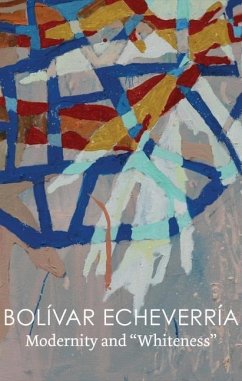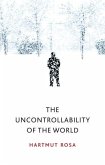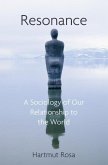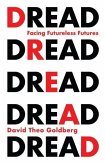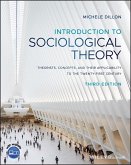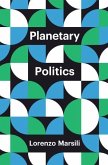Bolívar Echeverría was one of the leading philosophers and critical theorists in Latin America and his work on capitalism and modernity offers a distinctive account, informed by the experiences of Latin American societies, of the social and historical forces shaping the modern world.
For Echeverría, capitalism and modernity do not coincide: modernity is a long-term historical phenomenon that involved a new set of relations between human beings and nature and between the individual and the collective, while capitalism is a particular form in which modernity has been realized. As Marx showed, capitalism is a mode of reproduction that involves the growing commodification of social life - everything, even human labor power itself, is turned into a commodity. Echeverría introduces the notion of blanquitud or "whiteness" to capture the new form of identity that is brought into being by the totalizing and homogenizing character of capitalism. While blanquitud includes certain ethnic features, it is not so much an ethnic category as an ethical and cultural one, referring to a type of human being, homo capitalisticus, which threatens to spread throughout the world, overcoming and integrating identities that might otherwise resist it. But capitalism is not the only form of modernity - there are alternative modernities. In the final part of the book Echeverría explores the baroque as a characteristic of Latin American identity and sees it as a way of theatricalizing and transforming reality that takes some distance from Eurocentric paradigms and resists the homogenizing forces of capitalism.
Echeverría's analysis of the dynamics of capitalism and modernity represents one of the most important contributions to critical theory from a Latin American perspective. It will be of great interest to students and scholars of critical theory and postcolonial theory and anyone concerned with the global impact of capitalism on social and cultural life.
Hinweis: Dieser Artikel kann nur an eine deutsche Lieferadresse ausgeliefert werden.
For Echeverría, capitalism and modernity do not coincide: modernity is a long-term historical phenomenon that involved a new set of relations between human beings and nature and between the individual and the collective, while capitalism is a particular form in which modernity has been realized. As Marx showed, capitalism is a mode of reproduction that involves the growing commodification of social life - everything, even human labor power itself, is turned into a commodity. Echeverría introduces the notion of blanquitud or "whiteness" to capture the new form of identity that is brought into being by the totalizing and homogenizing character of capitalism. While blanquitud includes certain ethnic features, it is not so much an ethnic category as an ethical and cultural one, referring to a type of human being, homo capitalisticus, which threatens to spread throughout the world, overcoming and integrating identities that might otherwise resist it. But capitalism is not the only form of modernity - there are alternative modernities. In the final part of the book Echeverría explores the baroque as a characteristic of Latin American identity and sees it as a way of theatricalizing and transforming reality that takes some distance from Eurocentric paradigms and resists the homogenizing forces of capitalism.
Echeverría's analysis of the dynamics of capitalism and modernity represents one of the most important contributions to critical theory from a Latin American perspective. It will be of great interest to students and scholars of critical theory and postcolonial theory and anyone concerned with the global impact of capitalism on social and cultural life.
Hinweis: Dieser Artikel kann nur an eine deutsche Lieferadresse ausgeliefert werden.
"Bolívar Echeverría was one of the most brilliant and innovative Marxist thinkers of Latin America. Using, in a creative way,concepts of the Frankfurt School, he develops a radical criticism of the capitalist "really existing" modernity, grounded on "whiteness". But he also shows how the Latin American baroque ethos, rooted on mestizaje, becomes a spontaneous strategy of resisting to capitalist colonisation and the "American Way of Life"."
Michael Löwy, emeritus research director, CNRS, Paris
"Echeverría's work seems more vital than ever."
Los Angeles Review of Books
Michael Löwy, emeritus research director, CNRS, Paris
"Echeverría's work seems more vital than ever."
Los Angeles Review of Books

